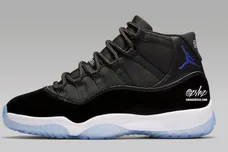When Metro ventures into the deep like an independent realtor, his inexperience starts to show. Bear with me here; Metro Boomin hasn’t lost a step as a producer. He's still the X-Y variable critics use to point out flaws in other people's work. The fingerprints he left behind prior to his leaving: unblemished as ever before! Metro Boomin even flexes new adaptors. The sample board is given air to breathe, he plots interludes with linear progression in mind. In the final third of NOT ALL HEROES WEAR CAPES, his presumed "solo" debut, Swae Lee and WizKid are native speakers he calls upon to help broaden his appeal beyond the gothic undertones -- an incursion no different than a dating app asking you to expand your "discovery settings" when your luck runs out.
By returning to the game in a shroud of secrecy, we've been forced to view Metro a little differently, leading us to question the adverse effects of making such a bold transition. The question of his leaving is rightly skewed, but he's not dodging the question. Bear in mind, his "absence felt" was part of NAHWC's rollout. Giant-sized missing person ads were erected in Atlanta and New York City weeks before he spilled the beans.
I don't think Metro Boomin is being excessively narcissistic in patterning himself in his own image. I reckon the "new" Metro is less inclined to share his ideas without full representation. With that in mind, NOT ALL HEROES WEAR CAPES could easily be divided amongst the spoiled children he once tutored, but it wasn't. The result is a chocolate orange susceptible to falling apart without the aforementioned "plotted interludes." In that sense, NAHWC better serves its guests than its master. Without a translatable vision for the project, Metro Boomin doesn't quite gain the creative foothold he needs to acquire if he fancies himself an autonomous figure, different to the norm, like say a googly-eyed DJ Khaled with a glue nozzle for a crystal ball.
For the record, Metro Boomin doesn't need to gain his 'spect any less than an angel custodian when it touches down upon Earth, but NAHWC is no visionary quest, it's more of a showcase effort. If you view it as such, you will enjoy all 43 minutes of it. If you expected something else from him, stay grounded, for Metro has spent the majority of his career selflessly helping others discover their innermost character, and we may have taken that for granted. The selfless pursuit of his "previous life" adequately explains why the best moments on NAHWC are those built around those foundational relationships: the 21 Savage, Gucci Mane, and Young Thugs of the World.
Gucci Mane slots in perfectly On "10AM/Save The World," because like I said before, there is history to fall back on. Their 2017 collaboration Drop Top Wop is the groupable model for rapper-producer congruency -- if you aren't convinced, meet me in the wind tunnel after the game. The standout moment on the entire project occurs when 21 Savage opts for a psychoactive whisper tone. 21 and Metro Boomin are so intertwined in each other's professional lives. With Metro Boomin behind the soundboard, 21 is always at his most (insidious) charming, like a Charles Manson figure personified, with devastating killer instincts hidden behind a pleasing disposition.
To that end, we certainly can't label Metro Boomin as a life-serving "artist" until we know his full potential. Every part of NAHWC is enjoyable in its own right since Metro Boomin fans have become accustomed to a "mood-specific" setting he departs from on this project. With the power to transcend his post-trap aesthetic in full-display, Metro Boomin is gearing up for the most arduous creative phase of his career. NAHWC is a memorable showcase if you wade through the more tenable parts and create your own setlist. For Metro Boomin the distance between the 1st rung he currently occupies, and the rest of the ladder is so cavernous, he surely has all the time in the World to find his autonomy.









